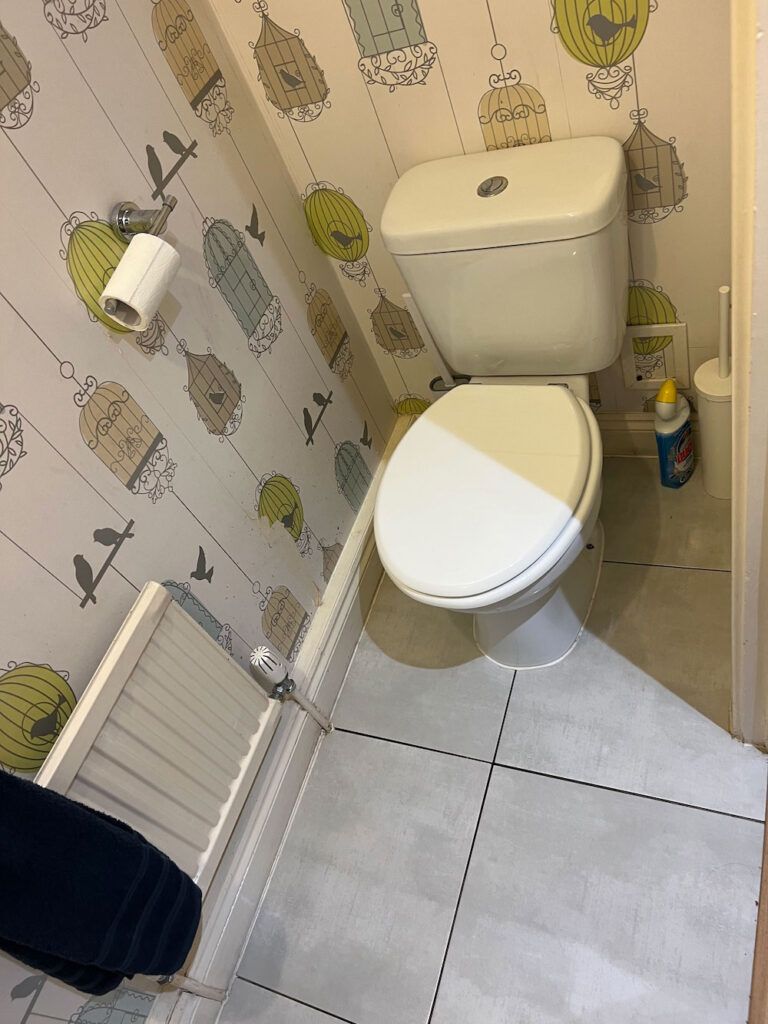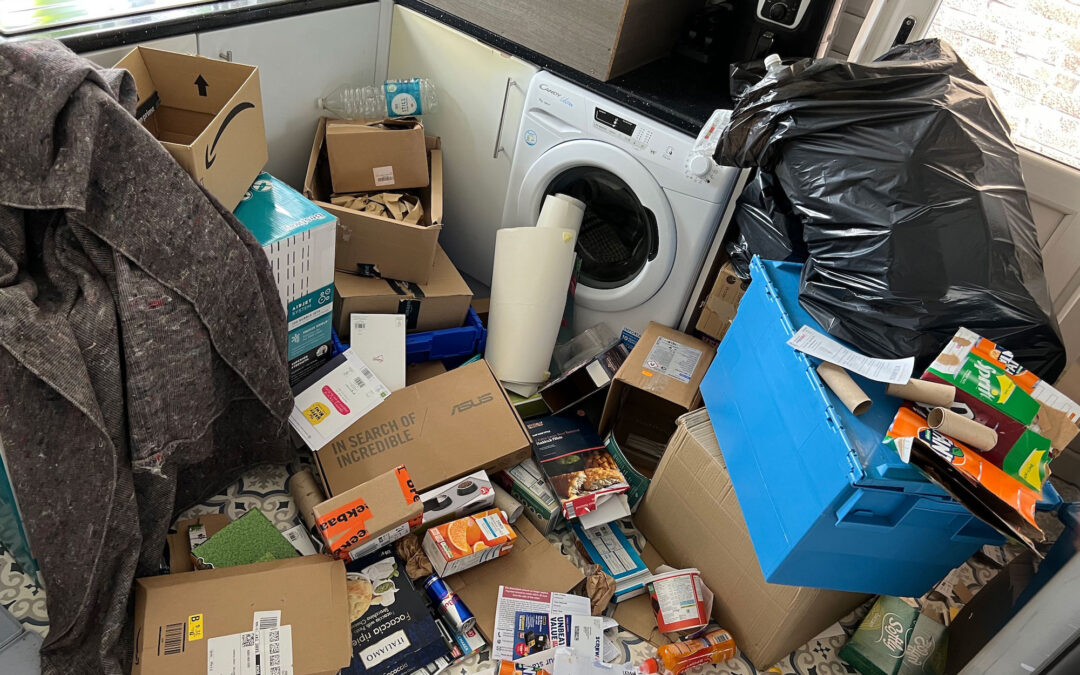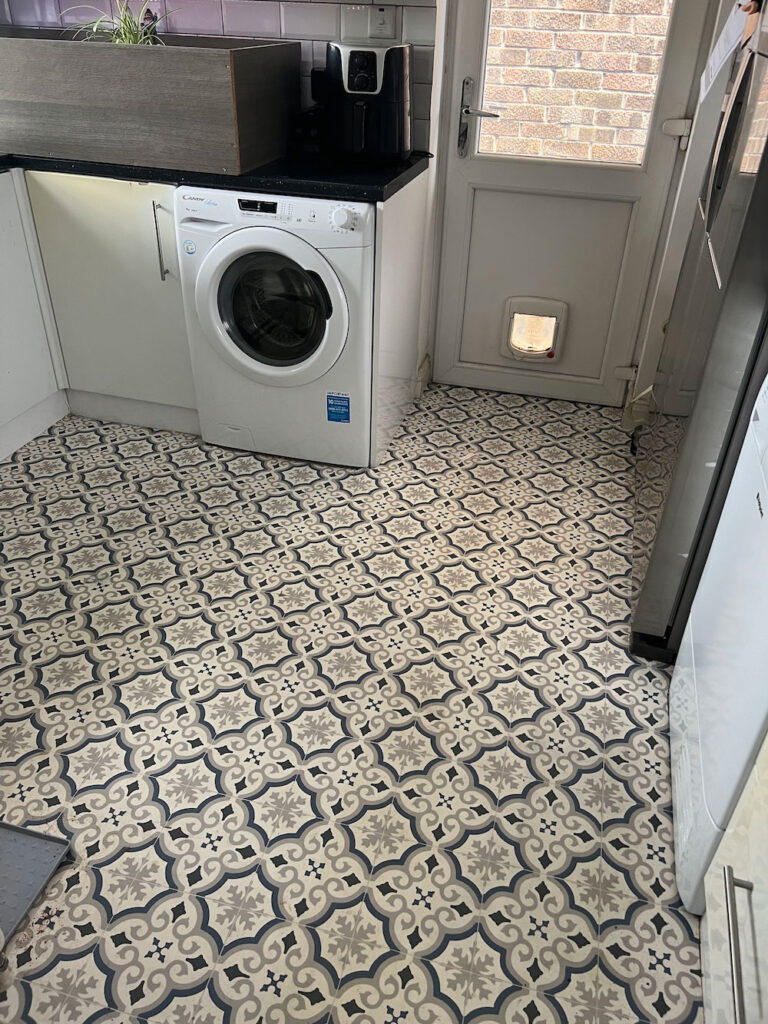Some of us may say that we find it hard to throw things away and joke that we are hoarders, just as we may say we like a place clean and say that we have OCD.
While it’s good that some understanding of mental health is making it into our everyday conversations, we run the risk of downplaying serious conditions which can have a huge impact on the lives of sufferers and those who love them.
What is hoarding disorder?
The accumulation of an excessive number of possessions, hoarding is the persistent difficulty of discarding items. This can lead to unmanageable levels of clutter, and it’s the quantity of items that marks the difference between normal collections and hoarding. Most commonly hoarded items include carboard boxes, newspapers and magazines, household supplies and food, paper and plastic bags
How many people are affected by hoarding?
According to the International OCD Foundation, it is estimated that hoarding disorder affects around 2-6% of the population, with no recorded difference in terms of gender and race.
Older adults aged 55-94 are more prone to the disorder, although symptoms can occur in young children too. Symptoms can emerge from age 11-15 and start to impact every day life by the mid 20s, with a significant impairment in their 30s.
For the majority of people – around 75% – hoarding disorder Is accompanied by another mental health condition, the most common being major depressive disorder, social anxiety. social phobia and generalised anxiety. OCD also occurs with around 20% of hoarders.
How to spot hoarding disorders
Typical signs of a hoarding disorder include:
- collecting/keeping items which have little/no value, or items they hope to repair/reuse
- finding it hard to arrange items
- difficulty making decisions
- struggling with everyday tasks eg cleaning, cooking, dealing with bills
- attachment to items to the point where they can’t be touched or borrowed
- poor relationships with friends and/or family
Quality of life
Hoarding items can significantly reduce the space available in a home, on occasion restricting access to rooms completely. Items can also present a fire hazard and risk falling down. In some cases, the physical items can feel more important than people, negatively impacting relationships when someone tries to clear the clutter.
How to help a hoarder
It’s really important to encourage a person who is hoarding to seek help, as if it’s not resolved, it’s a problem that’s unlikely to go away. Although some may realise they have a problem they may be reluctant to seek help because they feel ashamed or guilty, so it’s best to broach the subject sensitively. Try to encourage them to speak to their GP who may refer to your local community mental health team for CBT or OCD charity.
CBT can help the person to gradually throw things away, enforcing that nothing bad happens when they do this, and giving them a better understanding of their problem.
Avoid the urge to clear the property – it won’t solve the issue and is likely to impact your relationship with the person who is hoarding, and then they will continue hoarding but may not trust you again.
If you would like some help clearing a space after a hoarder has vacated, or would like a clean up once a hoarder has managed to clear their items, please get in touch. Our sensitive team can help.
The importance of a clean office
It’s fair to say the past few years have brought it all home to us how important it is to keep on top of germs and bacteria, and the potential of contamination through both the air and touch. Many people still spend much of their lives in the office, where they may have no real control over how clean the space is overall, but the level of cleanliness can impact both their health and morale greatly.
Most business owners will depend on their in-house cleaners to maintain their workplace’s cleanliness, but their efforts may not be enough.
The benefits of a deep clean
A routine deep clean can introduce more powerful vacuums and cleaning equipment to get deep down into the spaces and surfaces that might be hard to thoroughly clean otherwise. This level of cleaning can reduce the accumulation of dirt and dust and bring down sickness levels as there are less germs and bacteria.
How do you feel working in a cluttered place, with a bathroom and breakout area which feels dirty and dingy? Will it lead to your best work? You can really see and feel the difference of a truly clean office. Not only will a clean workplace help your employees to remain healthy but how it looks and feels will help them to feel valued. The cleaner a workplace is, the more productive it is.
Clutter and objects or slippery breakout areas can lead to injuries, such as trips and falls too.
Of course, it’s not just your employees who will be coming into your workplace – it’s likely that you’ll also have potential clients visiting too. The best impression to make is one of professionalism – it’s also better for your reputation.

The dirtiest places may not be where you think
Do you still have hand sanitiser in your workplace? If not, you may wish to bring it back! It’s unsurprising that high bacterial counts have been found on everything that people touch, such as keyboards, mice, office phones, water stations, lift buttons, sink taps, vending machine buttons, and fridge and microwave door handles as well as doorknobs.
How to achieve a clean workplace
It’s worth encouraging routine, proper hand washing, if you can, and asking employees to clear their desks before they go home. A big problem with germs coming into the office is that people who are feeling under the weather come in and spread germs, so it’s also worth allowing your employees to work remotely if they are sick.
Regular routine cleaning can help you to keep on top of things and reduce levels of bacteria and germs.
If you would like to talk about improving your regular cleaning or introducing a deep clean to your routine, we’d be happy to give you a consultation. Please get in touch.



